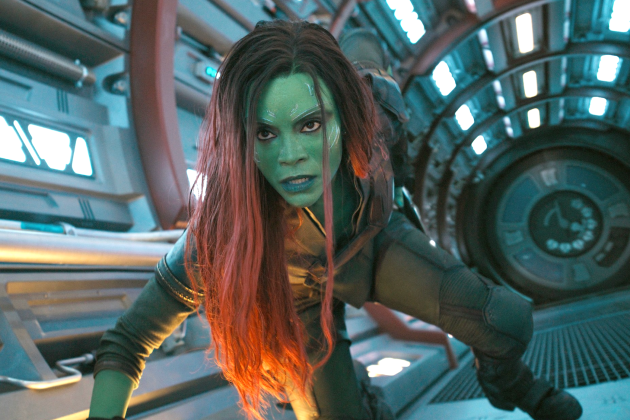For ‘Guardians of the Galaxy 3,’ It’s All About Box Office Staying Power

“Guardians of the Galaxy Vol. 3” kicked off summer movie season with $118 million at the domestic box office, falling just short of expectations while still landing the second-biggest debut of the year.
There are plenty of ways to parse that initial number, but for the third and final installment in the James Gunn-directed Marvel trilogy, it’s going to be less about the opening weekend — and all about the hold. That’s industry parlance for how sharply (or not) a movie’s ticket sales fall in their subsequent weekends of theatrical release.
More from Variety
China Box Office: 'Guardians of the Galaxy Vol. 3' Makes $28 Million Debut
Korea Box Office: 'Guardians of the Galaxy Vol. 3' Enjoys Strongest Opening of the Year
'Guardians of the Galaxy Vol. 3' Ignites With $170 Million Internationally, $289 Million Globally
It’s hard to knock a film that opened above $100 million. Yet analysts were expecting a stronger start for “Vol. 3” because it’s the last of Marvel’s legacy tentpoles (at least, that have been announced) and because its predecessor, 2017’s sequel “Guardians of the Galaxy Vol. 2,” enjoyed a much bigger $146 million debut. The downturn is not a problem as long as audiences keep showing up.
The issue is that pandemic-era films in Disney’s Marvel Cinematic Universe have suffered from a momentum problem at the box office. Recent installments started strong, only to quickly run out of steam. “Ant-Man and the Wasp: Quantumania,” in particular, collapsed after scoring a trilogy-best debut of $106 million. Ticket sales for Paul Rudd’s third standalone adventure cratered by 70% in its second weekend, continuing a worrying trend from “Doctor Strange in the Multiverse of Madness” (down 67% in its second weekend) and “Thor: Love and Thunder” (a 67.7% dip in its sophomore outing). It would be alarming for “Guardians” to suffer the same fate because it would reinforce the narrative that the MCU is struggling to maintain its status as an A-list franchise.
Unlike “Quantumania,” though, fans have embraced “Vol. 3,” which earned an “A” CinemaScore and 81% on Rotten Tomatoes. Already, it’s a positive sign that the weekend’s estimate of $114 million was revised up to $118 million after a better-than-expected turnout on Sunday. But the comic book threequel has just two weeks without competition. Blockbuster season revs into high gear with “Fast X” on May 19 and “The Little Mermaid” on May 26.
“The good news is that ‘Vol. 3’ is generating very positive word of mouth,” says Shawn Robbins, the chief analyst at Box Office Pro. “That could help stretch its staying power to be longer than those of ‘Quantumania’ and last summer’s frontloaded Marvel films.”
David A. Gross, who runs the movie consulting firm Franchise Entertainment Research, cautions against knocking Marvel, given its enviable track record. Of the 32 films in the franchise, every single one has opened to No. 1, and 10 have surpassed $1 billion globally. “Bear in mind,” he says. “For superheroes, average is in the stratosphere.”
While that’s true (the average film would kill to earn $100 million in its entire theatrical run, much less in its opening weekend), Marvel movies are held to higher standards. That’s in part because they’re expensive to make and market — “Guardians of the Galaxy 3” cost $250 million to produce and roughly $100 million to promote — and because they’re reliably among the highest grossing movies of the year. Disney has been pumping out around three theatrical tentpoles a year, not including the many interconnected television series on Disney+, to meet the demand from fans for more, more, more superheroes. A third Marvel movie, “The Marvels,” starring Brie Larson, opens in November.
“Marvel certainly has the capacity to maintain the output of three theatrical films a year,” says Paul Dergarabedian, a senior Comscore analyst. “The key is to tap into the best of what the brand has to offer in terms of interesting characters and intriguing storylines.”
It’s been harder to sustain that level of output since 2019’s “Avengers: Endgame,” an epic finale that was 10 years and 22 films in the making, especially as movie theaters continue to recover from the pandemic. Analysts aren’t yet calling it superhero fatigue because despite the big second-weekend drops, last year’s “Doctor Strange in the Multiverse of Madness” and “Thor: Love and Thunder” ultimately managed to power to $955 million and $760 million, respectively. “Ant-Man 3,” however, failed to reach $500 million, ending that trilogy on a low and making it the rare Marvel movie to lose quite a bit of money in its theatrical run.
But those who closely follow the movie theater industry caution that Marvel can no longer coast on its bona fides without delivering a new or groundbreaking blockbuster. Eventually, they worry, audiences will tire of the same story over and over — especially if that story isn’t very good.
“Marvel is still building their post-‘Endgame’ road map, and it has never been more clear how challenging that is,” says Robbins.
Best of Variety
Tony Predictions: Best Musical -- Four Stand Poised to Give ‘Kimberly Akimbo’ Some Competition
This 'Fast and Furious' Arcade Cabinet Allows You to Step Behind the Wheel as Dom Toretto
Sign up for Variety’s Newsletter. For the latest news, follow us on Facebook, Twitter, and Instagram.

 Yahoo News
Yahoo News 